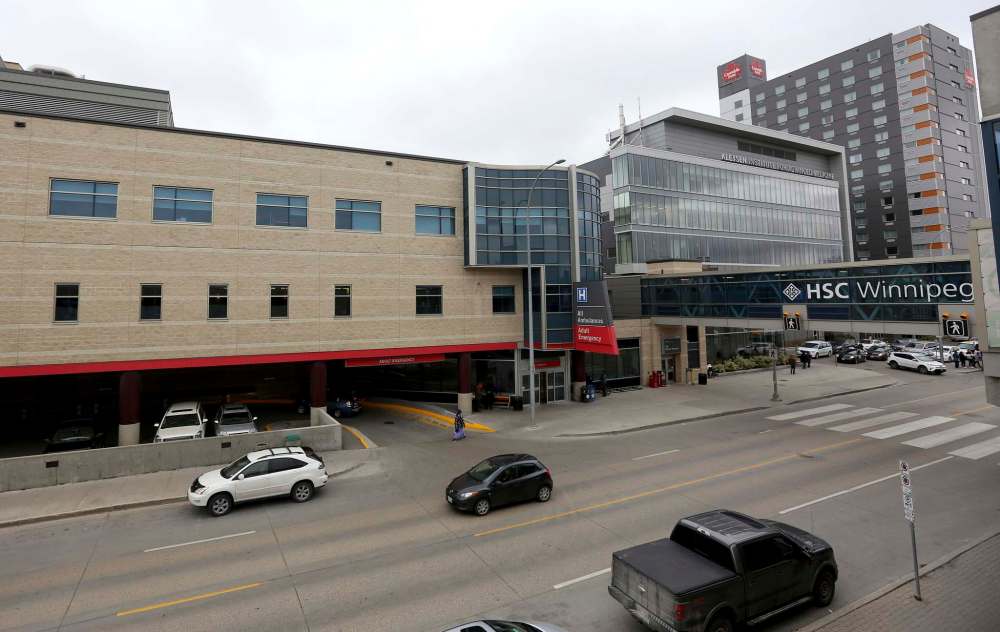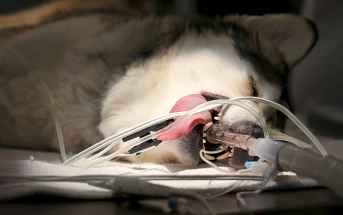Traumatized nurses weary of waiting for Pallister to answer call button
Read this article for free:
or
Already have an account? Log in here »
To continue reading, please subscribe:
Monthly Digital Subscription
$0 for the first 4 weeks*
- Enjoy unlimited reading on winnipegfreepress.com
- Read the E-Edition, our digital replica newspaper
- Access News Break, our award-winning app
- Play interactive puzzles
*No charge for 4 weeks then price increases to the regular rate of $19.00 plus GST every four weeks. Offer available to new and qualified returning subscribers only. Cancel any time.
Monthly Digital Subscription
$4.75/week*
- Enjoy unlimited reading on winnipegfreepress.com
- Read the E-Edition, our digital replica newspaper
- Access News Break, our award-winning app
- Play interactive puzzles
*Billed as $19 plus GST every four weeks. Cancel any time.
To continue reading, please subscribe:
Add Free Press access to your Brandon Sun subscription for only an additional
$1 for the first 4 weeks*
*Your next subscription payment will increase by $1.00 and you will be charged $16.99 plus GST for four weeks. After four weeks, your payment will increase to $23.99 plus GST every four weeks.
Read unlimited articles for free today:
or
Already have an account? Log in here »
Hey there, time traveller!
This article was published 06/01/2020 (2167 days ago), so information in it may no longer be current.
In the nearly two years since the Progressive Conservative government released a plan to dramatically reorganize the Winnipeg hospital system, two things have become abundantly clear.
First, that the hospital reorganization initiative — which reduced the number of full-service hospital emergency rooms to just three from the previous six while shuffling other medical specialties among the remaining hospitals — seems, on occasion, to be moving further away from a state of completion.
And second, that very little has been done as the changes have been unleashed to gain the trust of nurses, the single most-affected constituency in the hospital reorganization equation.
Make no mistake, this second issue is closely connected to the first; lingering conflict between the province and its nurses appears to be the single biggest reason why the reorganization plan is faltering.
Those conflicts took on an added dimension last week when the Manitoba Nurses Union threatened to “greylist” Health Sciences Centre, the province’s largest hospital and the hub of health-care services in Winnipeg. A greylisting advises nurses to refrain from applying for any job openings because of poor or inappropriate working conditions.
The MNU has not issued a greylisting yet but the threat marks a fascinating escalation in hostilities. While the union cannot stop its members from applying from vacant jobs at HSC, a greylisting has the potential to make a bad staffing situation even worse.
Since the Tories started restructuring Winnipeg’s health-care services, there has been bad blood with nurses. Suddenly, and without much advance warning, nurses suddenly faced the prospect of changing not only what they do, but also where and when they do it.

When the hospital reorganization was first announced, the MNU appeared to be a willing partner in managing the change. That turned out to little more than a mirage.
The MNU complained that it had not been consulted in any meaningful way about the kind of changes being made. The Winnipeg Regional Health Authority, surprisingly, did not disagree with that allegation. When pressed, WRHA officials confirmed that other than observing contract provisions for notifying nurses of terminations, they did not reach out to the union to find a more palatable way of deploying nursing resources to facilitate the hospital reorganizations.
The decision to bypass advanced consultations has created a mess of epic proportions. ER and urgent-care wait times are not going down. Staffing shortages have created an explosion of overtime. WRHA clearly underestimated the resolve of nurses to resist the changes that they believe have been unfairly foisted upon them.
While some nurses have quietly moved to new jobs in new facilities, others have elected to stay on the sidelines, watching and waiting to see how the restructuring unfolds. This has created a problems that are coming perilously close to compromising patient care.
The decision to bypass advanced consultations has created a mess of epic proportions.
Last summer, patients were turned away from the St. Boniface Hospital ER because of an untenable increase in patient volume. It was an alarming developing largely because it happened during the summer months and not in the teeth of the winter cold-and-flu season.
Meanwhile, overtime has skyrocketed at HSC and St. Boniface as nurses from now-closed community-hospital ERs have chosen not to take on new positions at the two core-area hospitals. Currently, nearly 19 per cent of nursing positions at St. Boniface are unfilled; HSC is at nearly 15 per cent vacancies. Health Minister Cameron Friesen has already conceded that an acceptable vacancy rate is about eight per cent.
Last week, several HSC nurses told the Free Press about unbearable workloads, escalating threats of violence from meth addicts and a shortage of basic medical supplies. These concerns are behind the MNU’s decision to consider greylisting the facility.

A WRHA spokesman offered this assurance: “A nursing stabilization working group has been established, and has developed a number of recommendations, that are currently being reviewed, to improve recruitment, retention and stabilization of the nursing workforce within Winnipeg.”
Positive steps that, quite frankly, are arriving on the scene in a hilariously late and horribly limited fashion.
This is the exact kind of consultation that should have been going on in 2017, prior to the release of the hospital restructuring report, and certainly before the closure of any ER.
The consultations are also extremely limited. Although HSC and St. Boniface are the source of the most-immediate concerns, this is a problem that exists well beyond the walls of those two hospitals. It’s a city-wide, if not province-wide, conflict that has, if left unattended, the potential to compromise patient care for years to come.
The bigger, underlying concern here is that even if the WRHA and hospitals have a desire for more dialogue with nurses, Premier Brian Pallister and his government have little appetite for working with unions to solve problems.
Meanwhile, overtime has skyrocketed at HSC and St. Boniface as nurses from now-closed community-hospital ERs have chosen not to take on new positions at the two core-area hospitals.
After taking office in 2016, Pallister disassembled high-level advisory groups involving labour unions, introduced legislation to suspend contract talks and impose wage freezes, and forced a reduction in the number of health-care bargaining groups. All of these policies were enacted without any advance consultation with, or input from, unions.
All of which leaves Manitobans in need of health care stuck between a rock and a hard place.
This is a dispute that can only be solved through meaningful, concerted dialogue between nurses and their political masters. Lamentably, neither side is showing much appetite for that kind of dialogue.
One can only hope that innocent patients do not get caught in the cross-fire.
dan.lett@freepress.mb.ca

Born and raised in and around Toronto, Dan Lett came to Winnipeg in 1986, less than a year out of journalism school with a lifelong dream to be a newspaper reporter.
Our newsroom depends on a growing audience of readers to power our journalism. If you are not a paid reader, please consider becoming a subscriber.
Our newsroom depends on its audience of readers to power our journalism. Thank you for your support.














